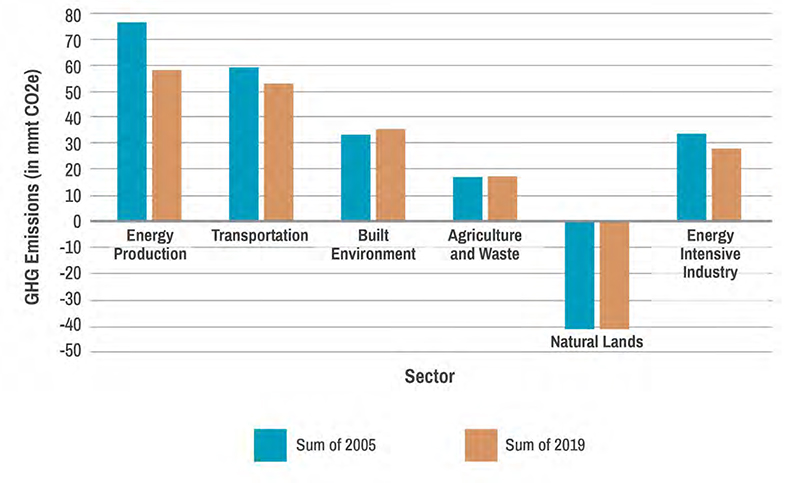LANSING, Mich. — Democrats introduced a package of seven energy and climate bills Wednesday that would end coal-fired electric generation in the state by 2030 and mandate 100% renewable electric production by 2035.
SB 276, introduced by Sen. Rosemary Bayer (D), calls for the state’s coal-fired power plants to be phased out by 2030, putting it at odds with DTE Energy (NYSE:DTE), which operates a 3,280-MW coal plant near Monroe.
DTE’s integrated resource plan calls for it to shut down Monroe Units 3 and 4 in 2028 and retire Units 1 and 2 in 2035. (See DTE Unveils Renewable Energy Plan, Speeds Up Ending Coal Use.) DTE spokesman Peter Ternes said the company had no comment on the legislation.
According to the Sierra Club’s Beyond Coal campaign, the only other plant that might be affected by the bill is the 70-MW TES Filer City Station, which is owned in part by CMS Energy (NYSE:CMS).

“TES has a planned retirement date of 2025, according to [the Energy Information Administration], but Sierra Club has not counted it because their contract with Consumers Energy ends in 2025, and they haven’t made any solid plans for the future, which means theoretically they could sign an agreement with another power purchaser, retire or convert to gas,” the Sierra Club said.
CMS has announced it would close all three units at the J.H. Campbell coal plant in West Olive in 2025 in addition to two units at the D.E. Karn coal plant in 2023. (See Mich. PSC OKs CMS Plan to End Coal Use by 2025.)
Senate Democrats announced their legislative plans last week as some 600 people met in Detroit at the state’s first Healthy Climate Conference.
The other bills are:
- SB 271, introduced by Sen. Erika Geiss, would mandate 100% renewable electric production by 2035.
- SB 272, introduced by Sen. Sue Shink, would give the Public Service Commission authority to consider climate, public health, social equity and price affordability issues in integrated resource plans by regulated utilities.
- SB 273, introduced by Sen. Sam Singh, would require municipally owned and cooperative utilities to continue participating in energy-efficiency programs (eliminating a 2021 sunset provision).
- SB 274, introduced by Shink, would require the development of a plan to reduce greenhouse gas emissions from buildings, including a zero-emission standard for new construction after 2026.
- SB 275, introduced by Singh, is intended to reduce the carbon intensity of transportation fuels to 25% below a 2019 baseline by the end of 2035. The bill, which would also establish a market for trading carbon intensity credits, would exempt aviation fuels from the clean fuels standard, although sustainable aviation fuel would be eligible to generate credits.
- SB 277, introduced by Sen. Kristin McDonald Rivet, would allow farms enrolled in Michigan’s farmland preservation program to lease out land for solar energy projects.
None of the bills in the package are tie-barred, meaning if some bills are blocked from passage, the others could still take effect.
Lisa Wozniak, executive director of the Michigan League of Conservation Voters, praised the proposals, saying recent polling showed most Michigan residents want the state to take greater action to fight climate warming. “This legislation will set Michigan on a path toward cleaner air, good-paying jobs, lower costs and a healthy, livable future,” she said.
Singh said the bills will help the state meet the goals of the MI Healthy Climate Plan. Adopted by the administration of Gov. Gretchen Whitmer (D) in 2022, the plan calls for the state to build the infrastructure for 2 million electric vehicles by 2030 and achieve carbon-neutral status by 2050.
If approved, the bill package would be the most significant action Michigan’s legislature has taken on climate issues since 2016, when the Republican-controlled state government enacted a bill requiring utilities to produce at least 15% of electricity by renewables by the end of 2021.
Now, following the 2022 election, the governor’s office and the legislature is under Democratic control, albeit with Democrats holding narrow majorities in both the House of Representatives and Senate. Under Michigan’s constitution, bills passed this year with less than two-thirds approval would not take effect until March 31, 2024.
While Democrats’ legislative package matches proposals urged by environmental groups at the start of the climate change conference, Whitmer did not call for any specific plan of action in her keynote address to the conference. Instead she praised the progress the state has made thus far, noting it has increased its renewable capacity from 17 MW in 2009, to 3,554 MW in 2022.
Whitmer last week also promoted a plan in her proposed 2023/24 budget to exempt EVs from Michigan’s 6% sales tax for two years. That proposal could save motorists up to $2,400 on a $40,000 EV, while costing state coffers some $48 million.
DTE Opens 225-MW Wind Farm
Adding to the state’s renewable fleet, DTE on Tuesday announced that it has officially opened the state’s largest wind farm, a 225-MW project spanning sections of Saginaw and Midland counties. (There is actually one larger wind project in the state, also owned by DTE in Isabelle County, generating 383 MW, but it is split into two separate farms.)



